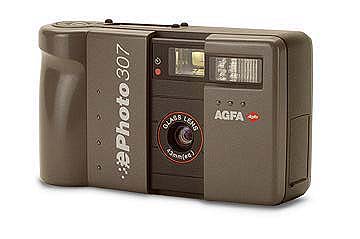
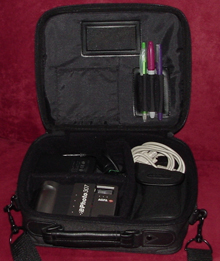
AGFA ePhoto 307 - 1996. 640 x 480 pixel CCD. 2MB internal memory. ISO 125. Fixed-focus lens. Shutter 1/8 to 1/10,000 second. Shown on right in Agfa carrying case. MSRP $499.
1996
A-C R


![]()
AGFA
ePhoto 307 - 1996. 640 x 480 pixel
CCD.
2MB internal memory. ISO 125. Fixed-focus lens.
Shutter
1/8 to 1/10,000 second. Shown on right in Agfa carrying case. MSRP $499.
https://www.digitalkameramuseum.de/en/cameras/item/agfa-ephoto-307
AGFA EASY PIX SV - 1996. Inexpensive
child's camera and Agfa's smallest smallest model ever -
about 2 inches by 3 inches. Also considered to be the poorest
quality camera ever sold under the Agfa name. Resolution: 0.3
MP. 8MB internal memory. (Rare on U.S. eBay)
https://collectiblend.com/Cameras/mycamprofile.php?uid=1258
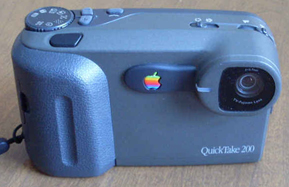
![]()
APPLE
QuickTake 200 (Fuji DS-7, Samsung Kenox SSC-350N) - 1996. Pretty in blue. Manufactured
by Fuji and marketed in 1997. 640 x 480 pixel CCD.
SmartMedia
memory card. ISO 100. Shutter 1/4 to 1/5000 second.
Fixed-focus
38mm f/2.2 lens. Some variation in marketing dates, pricing,
programming
and accessories between brands. MSRP $599 (Apple).
http://www.andybaird.com/qt200/
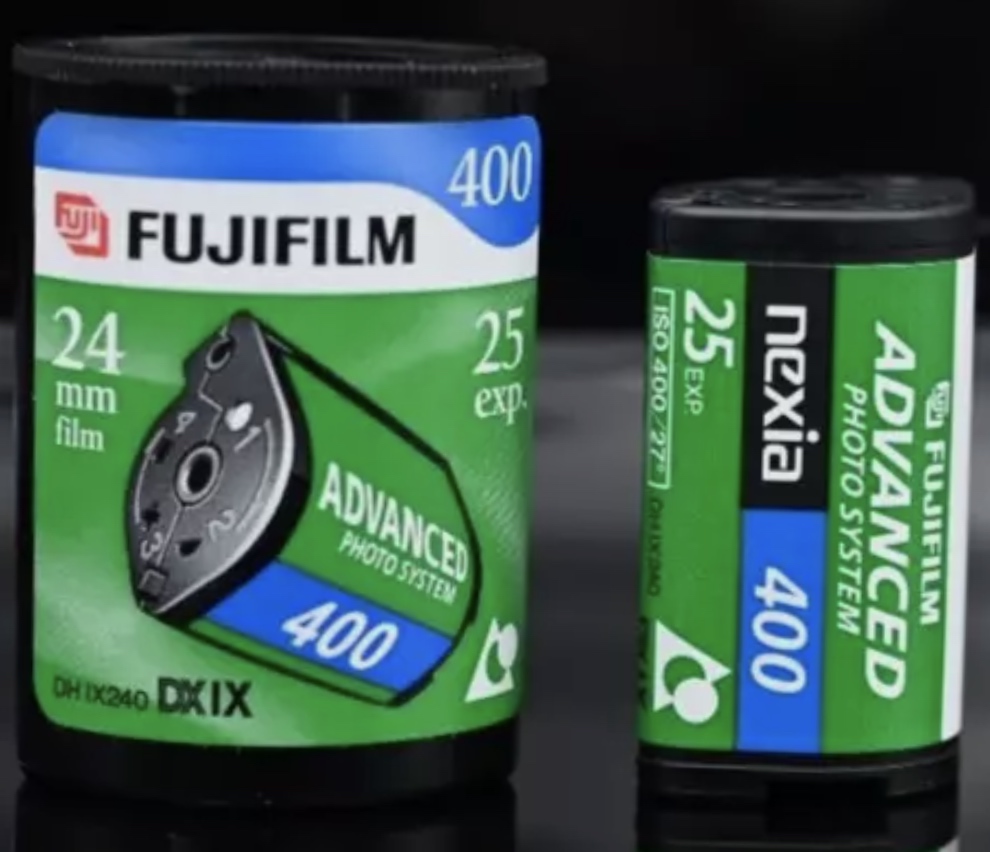
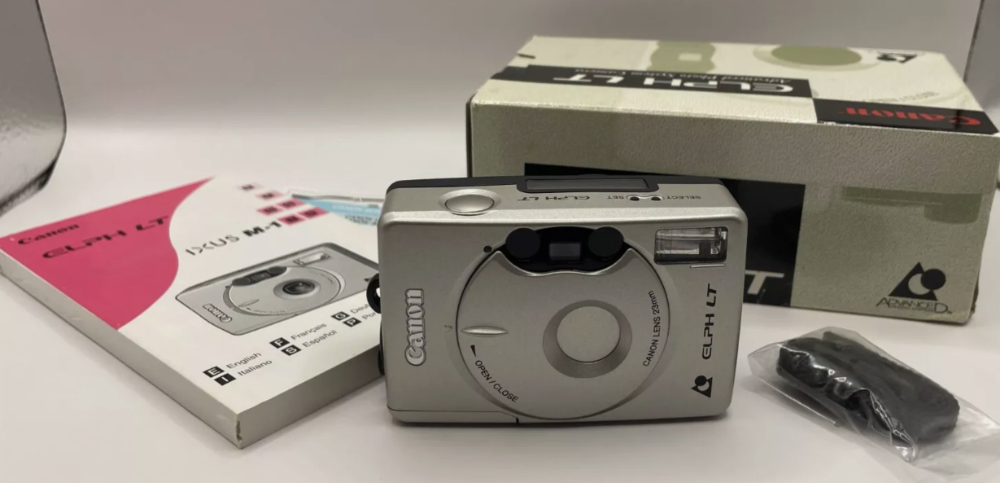
![]()
APS
Film
Typical APS Camera
(Canon Elph LT IX240)
Advanced Photo System (APS) Film - 1996.
APS (Advanced Photo System) film was in 24 mm width rather than
35mm and had three image formats: H for "High Definition" (30.2 x
16.7 mm; aspect ratio), C for "Classic" (25.1 x 16.7 mm;
aspect ratio), and P for "Panoramic" (30.2 x 9.5 mm; aspect
ratio). One other difference from 35mm film was that it was
designed to have the developed film returned to its original metal
cartridge after development rather than being placed in a package along
with the prints, It was marketed by Eastman Kodak under
the brand name Advantix, by FujiFilm under the
name Nexia, by Agfa under the name Futura and
by Konica as Centuria. Although a number of
manufacturers produced cameras for APS film, it did not obtain
long-term popularity in the market, apparently because many
photographers did not feel that its pluses were that significant
compared to standard 35mm file which produced somewhat sharper
images. However, APS film did have the advantage that Fuji and
Kodak marketed devices to convert APS negatives into digital foremat
Canon Elph LT IX240 - 1998. MSRP $180 (about $350 in 2025 dollars).
https://en.wikipedia.org/wiki/Advanced_Photo_S

![]()
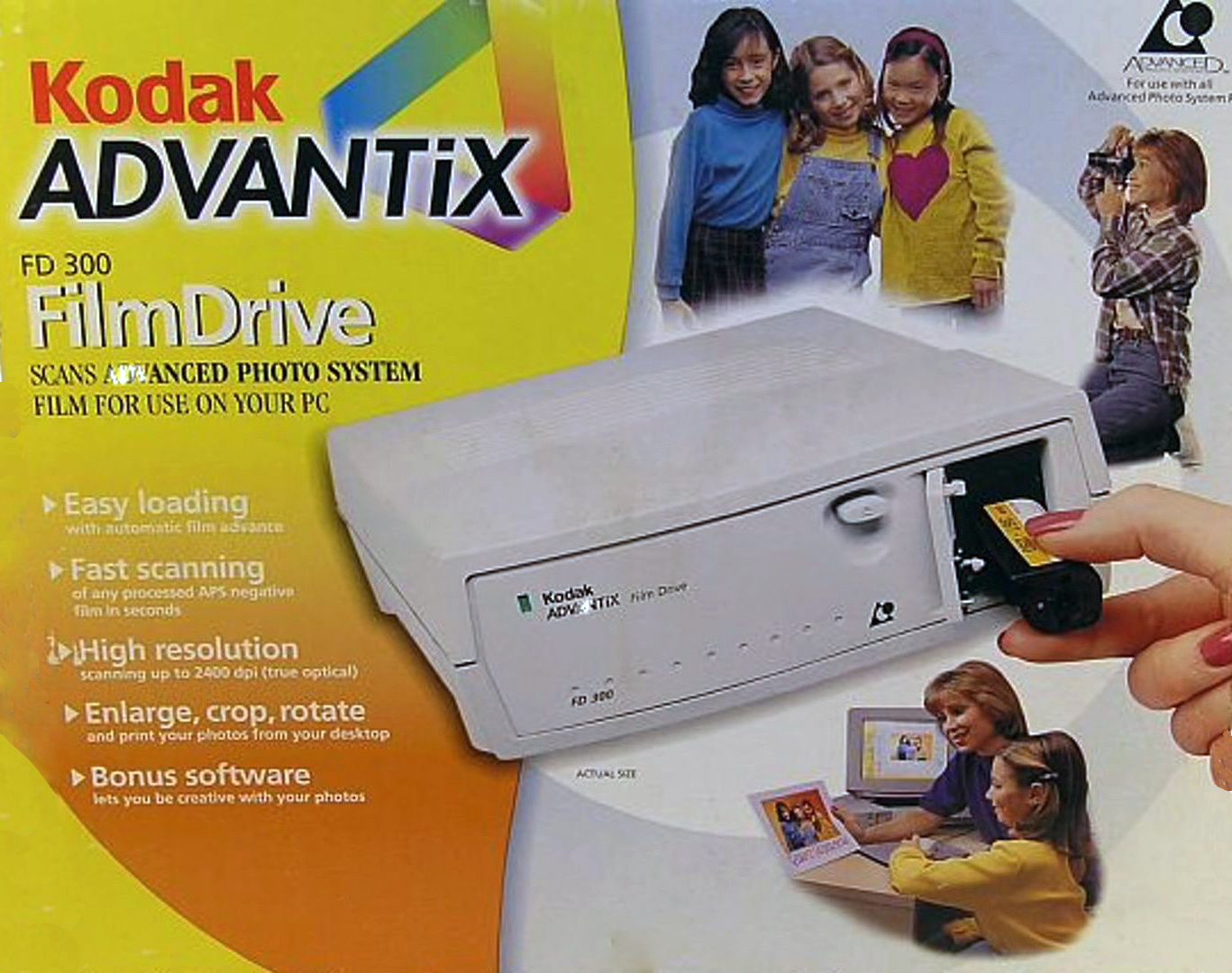


Fujifilm
AP-1
Kodak Advantix
FD300
APS Digitizers - 1996. Fuji and Kodak marketed digitizers for APS film that worked by placing
the film canisters into the digitizers which then converted the analog
film photos into digital images. The Fuji AP-1 was designed to
project the images onto consumer TV sets while the Kodak Advantix FD300
was intended to send the digitized images to a computer. Hi Res scans were about
5335 x 3043 pixels, or about 16MP.
Both of these digitizers can occasionally be seen on eBay as well as
APS film. There are still film developers who will process APS
film for those who wish to make prints from the film or who have
working digitizers.
Digitizers such as the AP-1 and
Advantix are no longer needed since many desktop scanners have film
holders which allow users to scan and digitize various sizes of color
and black and white film.
https://forum.songfacts.com/index.php?/topic/16899-1996-fujifilm-photo-player-ap-1/
https://www.diyphotography.net/this-device-from-the-1990s-bridged-the-gap-between-film-and-digital/
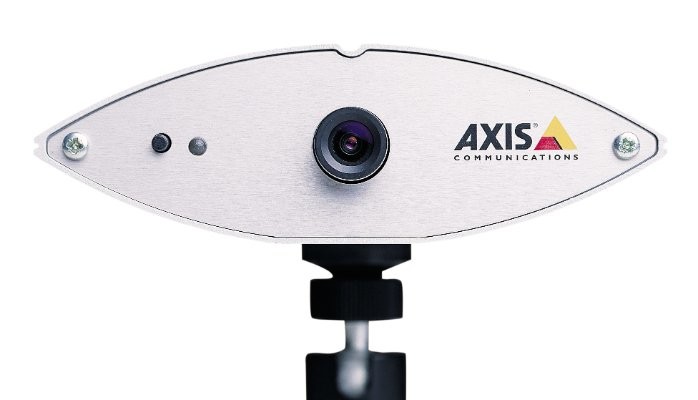
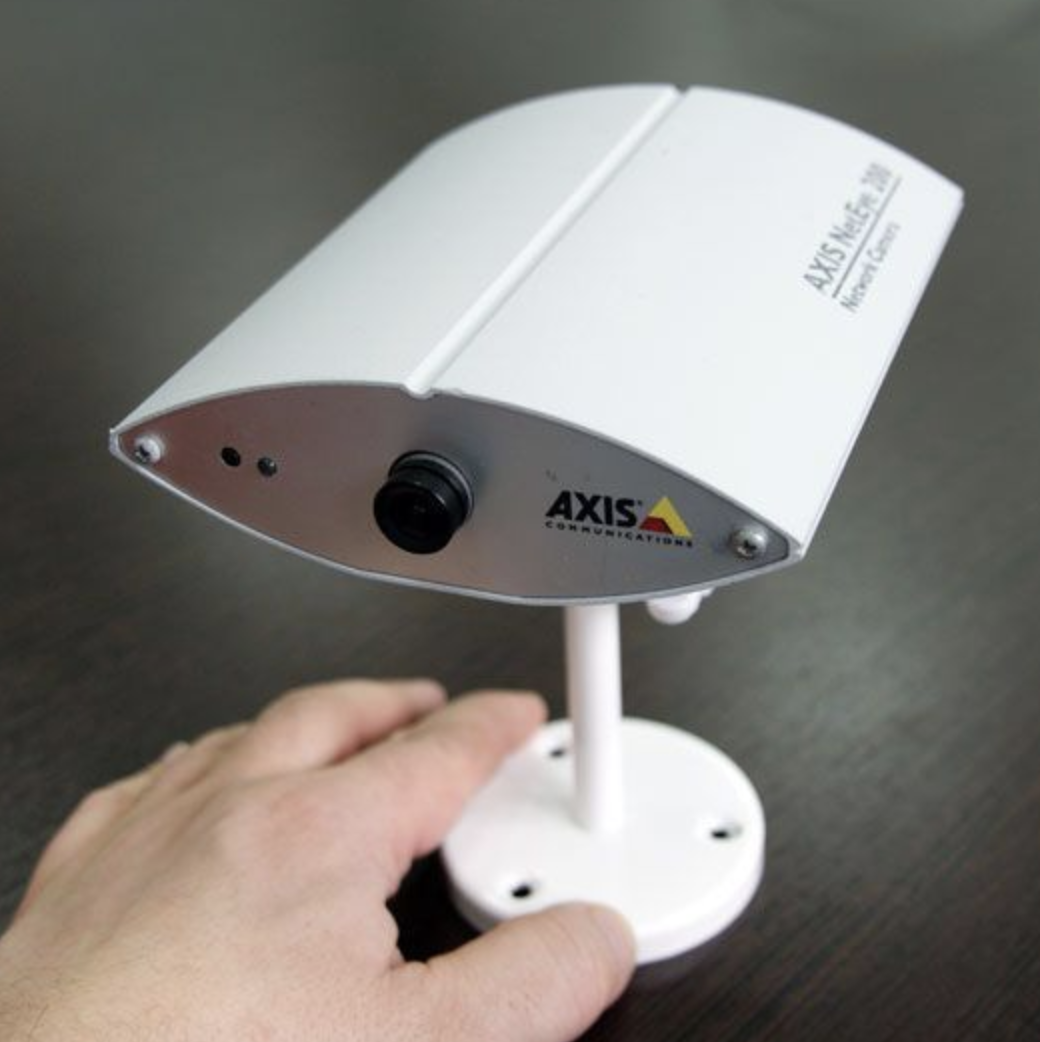

AXIS NETEYE 200 - 1996. The NetEye was the first internet camera and webserver combined into one unit It could also be used for time lapse photography. One of the
first uses of the camera was to monitor oil rigs for oil
spills. Color JPEG resolution of 352 x 288 pixels. 1/4 inch
CCD. Lens FL 3.8mm. Shutter 1/50 sec to 1/100,000
sec. MSRP $1,299. An original 200 may occasionally be
seen on eBay, but beware of scammers who may ask exorbitant prices for
an obsolete camera when far more advanced models are available at
competitive prices from Axis with full warranties and excellent
customer service. The 200 replacement, the 211A,
lists for $80.00. The Kodak DVC-300 can perform similar security
surveilance duties and can currently (Aug 2025) be purchased new on
eBay for $10- $25.
https://www.axis.com/files/datasheet/200/neteye_200_ds.pdf
https://en.wikipedia.org/wiki/Axis_Communications
https://www.digitalkameramuseum.de/en/cameras/item/axis-neteye-200
https://www.linkedin.com/pulse/axis-neteye-celebrates-20-years-tina-sprigg
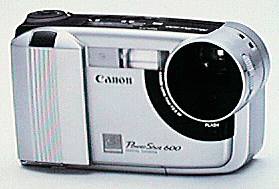


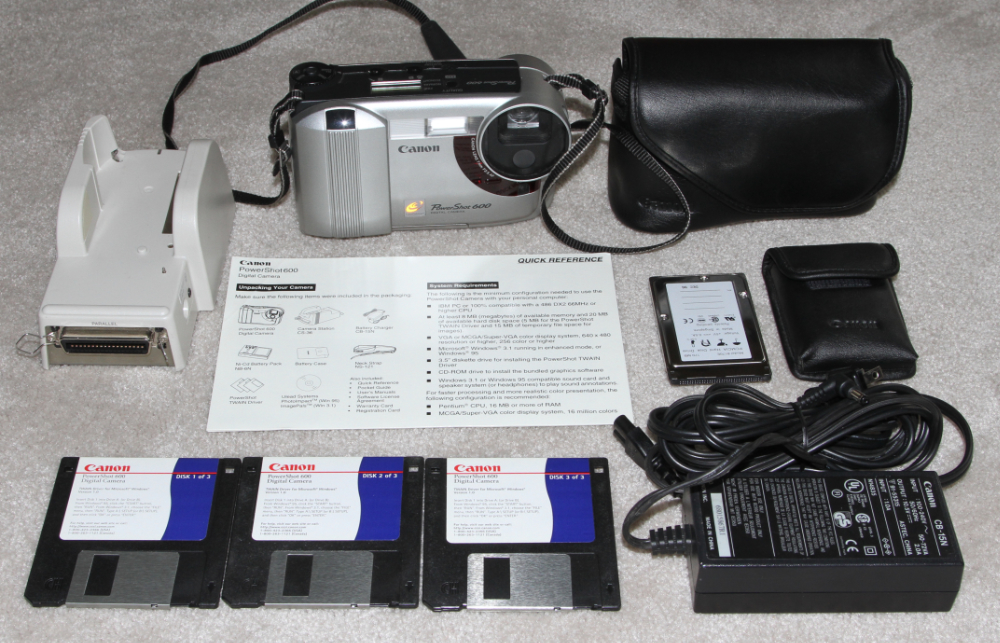
![]()
CANON
POWERSHOT 600 - 1996. 1/3-inch,
832
x 608 pixel CCD. ISO 100. 50mm lens. Shutter 1/30 to
1/500 second. Built-in flash, auto white balance. Optical
viewfinder
plus LCD. First consumer digicam able to use harddisk drive. Able to
store up to 176MB of images. First camera with a docking station.
MSRP $949.
http://global.canon/en/c-museum/product/dcc451.html
http://www.dpreview.com/products/canon/compacts/canon_600

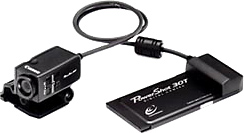
![]()
CANON POWERSHOT
30 (TOSHIBA NWB508KAH) and 30t - 1996. 1/4-inch
640 x 480 pixel CCDs. 55mm f/2.8 lens. ISO 100.
Shutter 1/20-1/5000 second. Auto white balance. It was also
sold as the Toshiba Card Camera (part nuumber NWB508KAH) in 1997.
The first such PC
card camera was the VLSI of 1994 (see 1994 page). Our cost for
the above sample in excellent condition was $18 on eBay plus $6
shjipping.
http://global.canon/en/c-museum/product/dcc452.html
http://global.canon/en/c-museum/product/dcc453.html
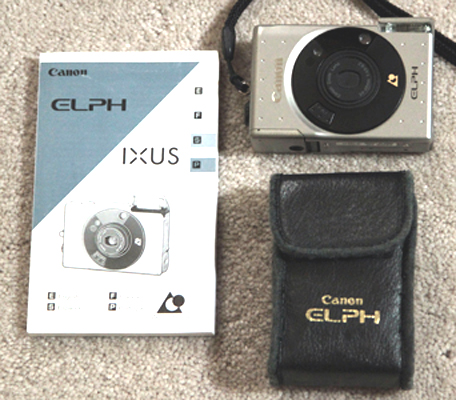

![]()
CANON ELPH (IXUS in Europe, IXY in Japan) - 1996. The ELPH was Canon's first foray into shirt pocket-sized cameras and was the world's smallest autofocus zoom camera at that time. The body was designed by Yasushi Shiotani in such a way that it would not look out of place inside a lady's handbag, and also look attractive when worn around the neck. APS film. Shutter 2 to 1/500 th sec. Lens 24-28 mm. It was a very popular camera, partially due to its unique stainless steel case. Near mint condition samples can be found on eBay for as little as $5.
http://global.canon/en/c-museum/product/film188.html
https://www.usa.canon.com/internet/portal/us/home/about/about-canon/canon-history/canon-history-1990
https://en.wikipedia.org/wiki/Canon_ELPH_(camera)
http://camerapedia.wikia.com/wiki/Canon_IXUS
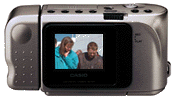
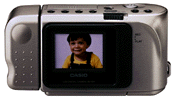
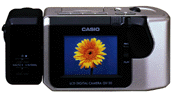
![]()
![]()
![]()
QV-10A
QV-10A
Plus
QV-30
CASIO
QV-10A, QV-10A PLUS, QV-30, QV-100, QV-300 - 1996. Entry
level digicams that generally sold for $400 to $600 when new.
Earlier
models had 320 x 240 pixel CCDs (QV-10A, 10A Plus, QV-30) and 2MB of
internal
memory while later models had 640 x 480 pixel CCDs and 4MB of
memory.
ISO 100. Shutter 1/8 to 1/4000 second. Some models with
fixed-focus
lens, others with variable focus.
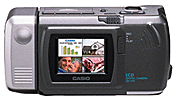
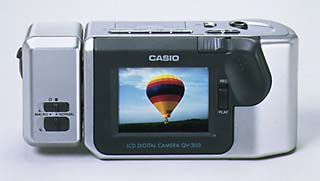
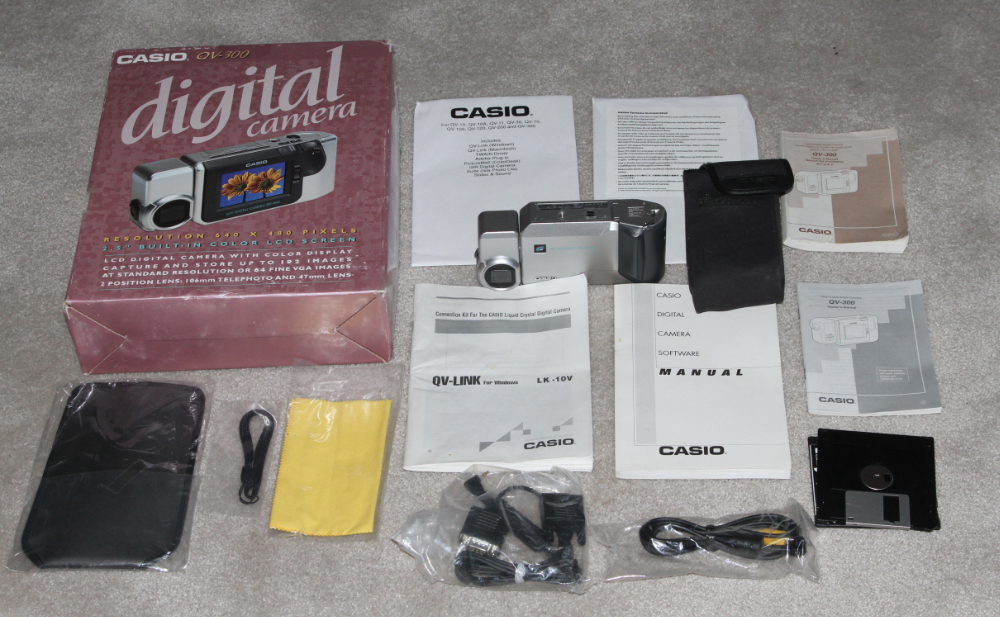
QV-100
QV-300
![]()
![]()
QV-100.
Similar to the QV-10A, but with a 640 x 480 pixel CCD. MSRP $650.
QV-300.
A lot of stuff in this box! 1/4-inch 640 x 480 pixel CCD. ISO 120. f/2.6, f/8
lens with wide and tele positions. Shutter 1/8-1/4000. Autofocus, built-in flash. MSRP $549. Markings
on Casios can be confusing. Some may say QV-10 on the front, but on the
bottom may say QV-10 or QV-10B, possibly indicating a different
marketing area or some minor change to the camera.
https://www.digitalkameramuseum.de/en/cameras/category/casio-2

CHINON
ES-1000 (Kodak DC-20) - 1996. Shown
at Comdex Fall '95, marketed in 1996, Japan only. 501 x 370 pixel CCD (Chinon) or
493
x 373 pixel CCD (Kodak). 1MB internal memory. Fixed-focus
6.5mm
lens. Shutter 1/30 to 1/4000 second. Although
specifications
were the same, the software for the two cameras varied. Price,
$300
(Chinon), $560 (Kodak). (Very Rare on U.S. eBay)
https://www.digitalkameramuseum.de/en/cameras/item/chinon-es-1000
http://camera-wiki.org/wiki/Kodak_DC20
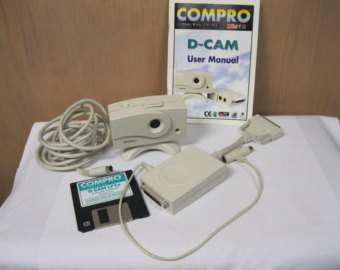
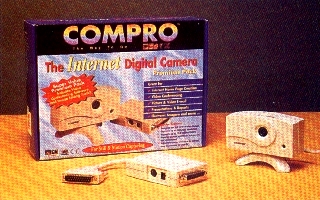
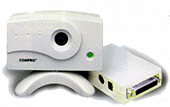
![]()
COMPRO D-Cam
(ACS Innovations International) - 1996. Typical
webcam capable of either still or video images. 640 x 480
pixels. Shutter 1/50 to 1/30/000 second. Adjustable focus
lens.
https://7nonsense.neocities.org/collections
CONNECTIX COLOR QUICKCAM - 1996. First accessory to PC and webcam with 24-bit color. 320 x 240 pixels.
https://en.wikipedia.org/wiki/QuickCam
1996
A-C